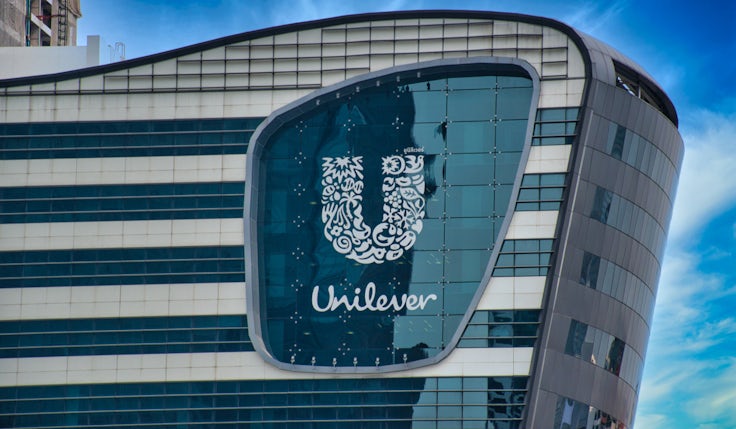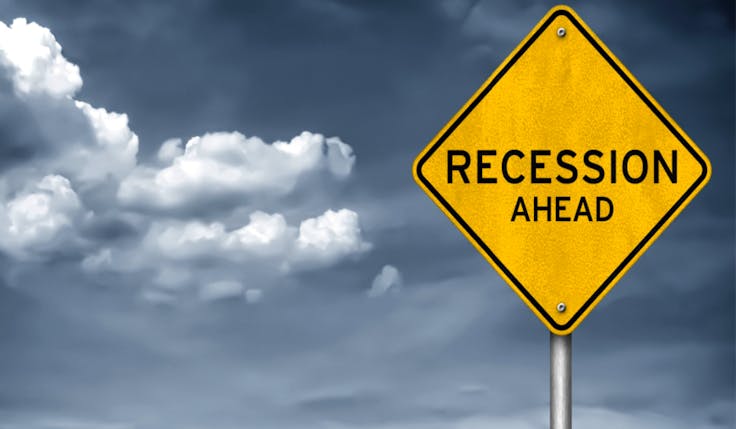Unilever ascribes brand growth to ‘precision’ pricing action taken to offset inflation
Unilever is prepared to temporarily accept a loss in volumes and competitiveness to protect its brands as inflation bites.
 Unilever’s CEO believes the company has “fine-tuned” an inflation “playbook” to navigate the tough economic environment, using its experience in markets such as Latin America to shape its approach in other countries and regions.
Unilever’s CEO believes the company has “fine-tuned” an inflation “playbook” to navigate the tough economic environment, using its experience in markets such as Latin America to shape its approach in other countries and regions.
Summarising the approach on a call with investors today (26 July), Alan Jope explained: “It starts with precision pricing taken quickly and single-mindedly to protect the shape of the P&L and retain our ability to invest behind our brands.”
He credited Unilever’s action on pricing with driving underlying sales growth of 8.1% for the first half of 2022, with a 9.8% increase in price and 1.6% drop in volume sales. Sales turnover therefore amounted to €29.6bn (£25.03bn), while underlying operating profit increased by 4.1% to €5bn (£4.23bn).
The business remains convinced that price increases are the right thing to do going forward, even if it means a decrease in volume.
Although there was underlying sales growth across all divisions, all saw negative impact on volume. In particular, home care saw volume sales down 3.4%, but this was offset by a 14.5% increase in price to drive underlying sales growth of 10.7%.
We have already reversed a couple of prices where we feel our competition are not following or we’ve moved too far.
Alan Jope, Unilever
Beauty and personal care saw underlying sales growth of 8.1%, as a 9.8% price increase offset a 1.6% volume drop, and food and refreshment underlying sales grew 7.5%, with price up 9.0% and volume down 1.3%.
“We are pricing ahead of the market and we’re prepared to tolerate low single-digit volume declines and some compromise on competitiveness for a limited period of time in order to land that price,” Jope said.
However, he added that volume levels and competitiveness have held “better than expected”, with 53% of the business winning share in its categories.
Unilever forecasts its volume sales will be down further in the second half of the year, as the “full impact of pricing lands”. While the business is prepared to accept some loss of competitiveness in order to protect its brands and P&L, it is being careful not to let the pendulum swing too far, Jope said.
“We have already reversed a couple of prices where we feel that our competition are not following or we’ve moved too far,” he admitted.
Unilever’s new organisational structure is already helping to speed up this kind of decision-making on pricing, he added. The restructure was introduced on 1 July and involves the introduction of what Unilever calls a “simpler, more category-focused” model.Unilever to price ‘aggressively’ to protect brands from inflationary pressures
During the call, Jope was asked whether he was concerned about disputes with retailers over pricing. Earlier this month, Tesco and Kraft-Heinz resolved a row which had seen products removed from shelves over “unjustifiable” price increases.
Jope said the company has just come out of an “intense period of price negotiation” with retailers in Europe.
“There will still be patches of disagreement with our retail partners. But overall, I think there’s a sober, rational tone to the engagement. It’s not a space that I’m losing my sleep on at the moment,” he said.
Continuing to step up marketing
A core goal of the pricing strategy is to allow Unilever to continue investing behind its brands. The business “stepped up” brand and marketing investment by €200m (£169m) to €3.7bn (£3.13bn) in constant exchange rates in the first half, which equated to a 40bps contribution to margin.
Chief financial officer Graeme Pitkethly confirmed one of Unilever’s priorities is to “keep brand equity high”, adding the business will continue to invest further in brand and marketing over the second half.
For its 13 brands worth over €1bn each, Unilever saw underlying sales growth of 9.4% in the half. These brands now account for more than 50% of group turnover.
The business highlighted “strong” performances for Magnum and Cornetto, supported by the Magnum Classic Remix and Cornetto Soft innovations. Jope also highlighted Hellmann’s ‘Turn nothing into something’ campaign, which played into the brand’s purpose of reducing food waste, as having driven sales.Unilever highlights Ben & Jerry’s and Hellmann’s growth following brand purpose criticism
Another key strategic priority for Unilever is to “lead in channels of the future”. Ecommerce sales now represent 14% of Unilever’s turnover, up from 6% pre-pandemic in 2019 and 2% in 2017.
Unilever is now seeing ecommerce activity in markets such as the US begin to “moderate”, as more shoppers return to in-person retail, Jope noted. However, this doesn’t mean the importance of online channels has decreased, he said.
“We see a greater number of consumers researching online and then purchasing offline. That emphasises the growing importance of digital channels in the path to purchase,” he explained.








Comments